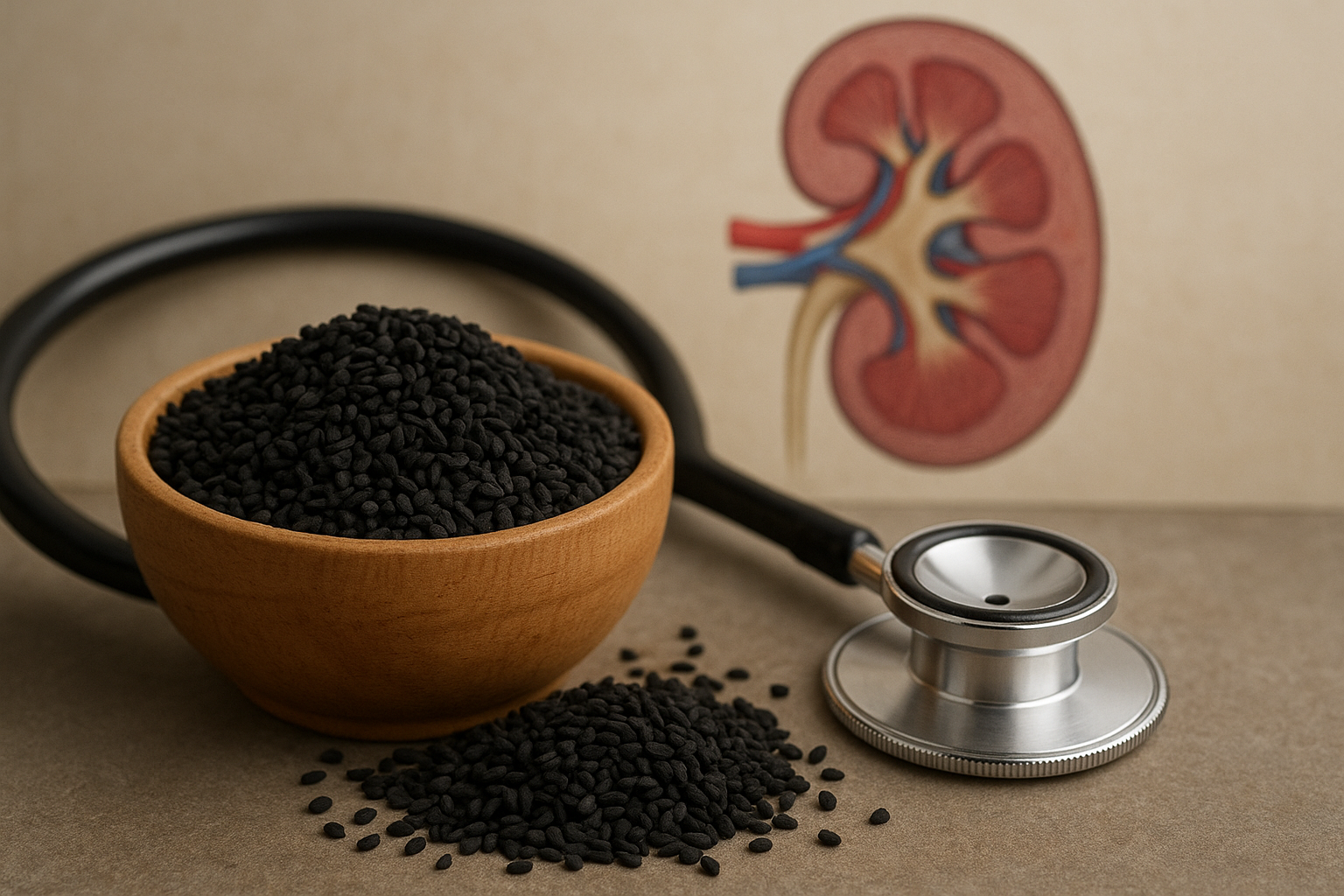A traditional spice found in Indian kitchens is now gaining attention in the medical world. Nigella Sativa, commonly known as black seed or kalonji, is being studied for its surprising ability to help dissolve kidney stones naturally and early findings are quite promising.
Ancient Remedy Now Backed by Science
Black seeds have been used for centuries in Ayurveda and Unani medicine for boosting immunity, digestion, and respiratory health. However, recent scientific interest has shifted toward its potential role in kidney health. Researchers suggest that its anti-inflammatory and antioxidant properties may help break down stone-forming minerals.
How Black Seed May Help with Kidney Stones
Studies indicate that compounds in Nigella Sativa such as thymoquinone could help:
- Prevent crystal formation in the kidneys
- Reduce inflammation and pain caused by stones
- Support urinary flushing, making it easier for small stones to pass naturally
Some small human and animal studies even showed a reduction in stone size when black seed extract was used regularly over a period of weeks.
Suggested Ways to Consume Black Seed
While there is no official medical dosage, traditional practices recommend:
- ½ teaspoon black seed oil in warm water daily
- Roasted kalonji seeds mixed with honey
- Herbal tea made from crushed seeds
(Always consult a doctor before using it alongside prescribed treatment.)
What Health Experts Think
Nephrologists acknowledge that herbal remedies like black seed may support kidney health, but they warn against relying solely on home treatments for large or painful stones. As one expert noted, herbal support can complement but not replace medical supervision.
Why This Matters
Kidney stones are becoming increasingly common due to poor hydration, high-sodium diets, and lifestyle stress. If a natural ingredient like Nigella Sativa can help manage or prevent stones, it could reduce hospital visits, surgeries, and recurring pain especially in rural and low-income populations.
(Related: Home Remedies vs. Medical Treatment Can Kidney Stones Be Prevented Through Diet?)
What’s Next?
Researchers are now calling for larger human trials to determine the exact dosage, effectiveness, and long-term safety of black seed as a kidney stone remedy. Until then, it may be used as a supportive natural aid alongside medical treatment and hydration.
Conclusion
Black seed, or kalonji, is no longer just a kitchen spice it may soon become a recognized herbal tool for kidney stone prevention. While it’s not a miracle cure, early evidence suggests it can support kidney function naturally when used safely and consistently.



